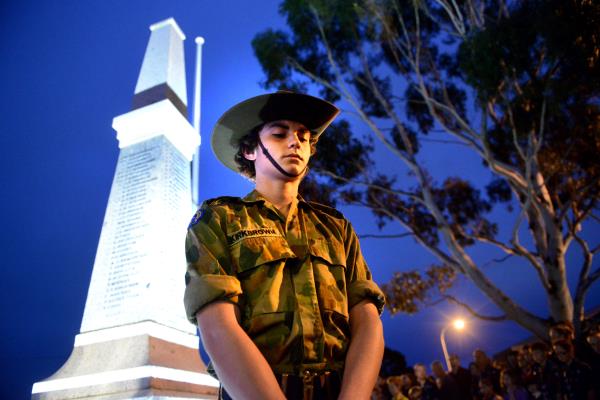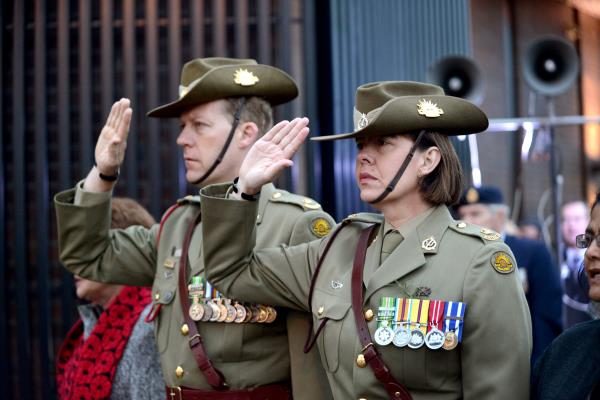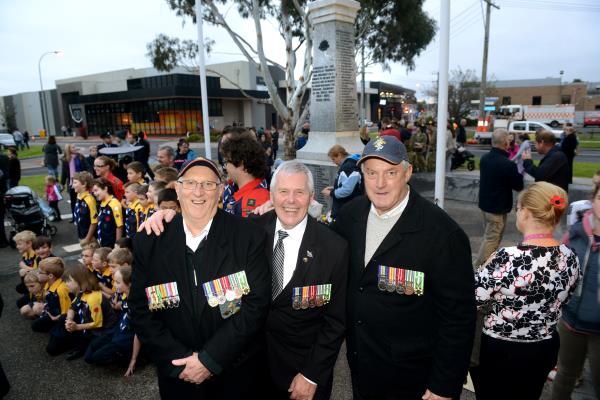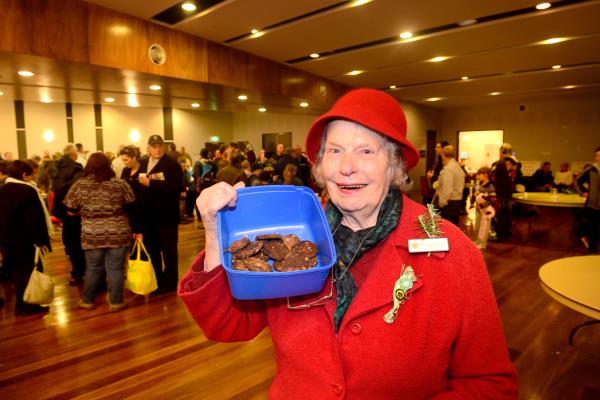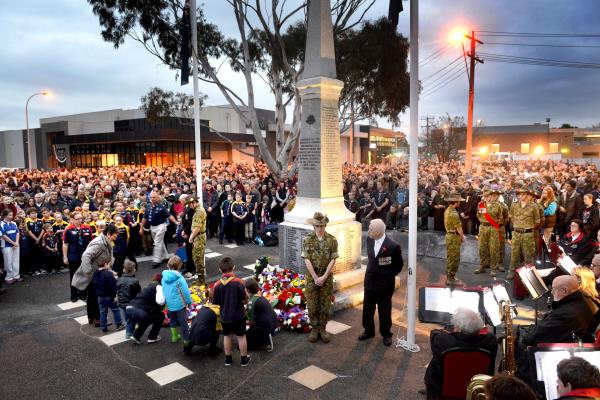
By GARRY HOWE
PAKENHAM-based Major Guy Warnock, a veteran of several Middle East deployments, told a record dawn service crowd on Saturday morning that it was time to debunk a few myths around the Anzac legend.
Major Warnock told the 4000-strong crowd that the centenary of the Gallipoli landing was the ideal time to straighten out a few “facts“ about the campaign.
He said that a century ago men in their thousands flocked to the patriotic bugle call to defend an Empire that most had never actually seen.
“We’ve been told that the Anzacs were bronzed, strapping lads from the country, expert horsemen and crack shots when the reality was that urbanised Victoria and New South Wales provided the majority of our troops, most were from cities and regional centres and most had never fired a gun before their enlistment,” he said.
Major Warnock said that, contrary to popular belief, the landings at what would become the Anzac sector were a military success, that they really didn’t land in the wrong spot and that most Australians landed close to where intended.
By contrast, the British landings further south were ineffective and the troops were massacred in their boats by the fully alert Turks.
“The Anzac landings a few hours earlier were a success, with perhaps 250 killed on the first day and 14,000 troops landed,” he explained.
Many killed after that were attributed in official correspondence as ‘…having died on or since 25 April’, therefore giving the impression of absolute carnage and the ’official’ death toll of 2000.
“The suggestion that Anzac troops were wasted needlessly at Gallipoli, as if they would have lived to old age had Gallipoli not happened, is fanciful,” he said.
“It is almost certain that they would have been sent instead to the Western Front in 1915 where they would most likely have been absorbed piecemeal into anonymous British formations.”
He said Anzac Day could well have been instead the “Second Battle of Ypres: 22 April to 25 May 1915“ – where the Germans first used poison gas – or the “Artois-Loos Offensive: 25 September to 15 October 1915“, both where huge casualties were suffered on both sides.
Major Warnock defended the British generals, who have copped a lot of criticism over the last 100 years for Gallipoli and World War I overall, which he described as “emotive distortion”.
“It is suggested that British generals sacrificed Australian, New Zealand and other colonial troops over their own men. One thing we now know is that they were rather even handed – they sacrificed British and other Commonwealth troops equally across the board.”
He said Anzac Day was largely ignored in Europe, but for Australia and New Zealand, Gallipoli was the biggest thing that had ever happened to us.
“And the First World War was the biggest, most far reaching and traumatic event to happen to Australia in the last 227 years,” he said.
“What really happened to us was the death of our best and brightest young men.
“We are not remembering “war” and we are not celebrating “victory” – we are honouring men and women; real people, not just characters in history”.
Major Warnock said that, as a Pakenham resident, he was impressed with last week’s edition of the Gazette, which he said “brought to reality what were previously just names etched on stone memorials like this one here, and others in our area like in Berwick, Nar Nar Goon, Beaconsfield and Kooweerup”.
“We must never forget the people and stories that make up the staggering figure of our collective 101,000 war dead: every man and woman a son, a daughter, a brother a sister; perhaps a father or mother,” he said.
“They served their country in time of war yet did not return to receive the grateful thanks of our nation.”
Other speakers were Bass MP Brian Paynter, Upper House MP Daniel Mulino and Uniting Church Reverend Ann Simmons.
Mr Paynter traced the Great War journey of Martin Augustin Barry as part of the 7th Battalion and said his thoughts were with his Great Uncle.
Pakenham RSL Sub-branch president Gary Elliott said many people would have similar thoughts on the day.
Nathan Hughes, of Pakenham, read a poem he wrote entitled Lest We Forget.
Guests then filed into the Pakenham Hall for a breakfast provided by the Shire of Cardinia and the Rotary Club of Pakenham and Anzac biscuits baked for the occasion by the Pakenham CWA ladies.
For Major Warnock’s full address, pick up a copy of this week’s Pakenham Gazette.

